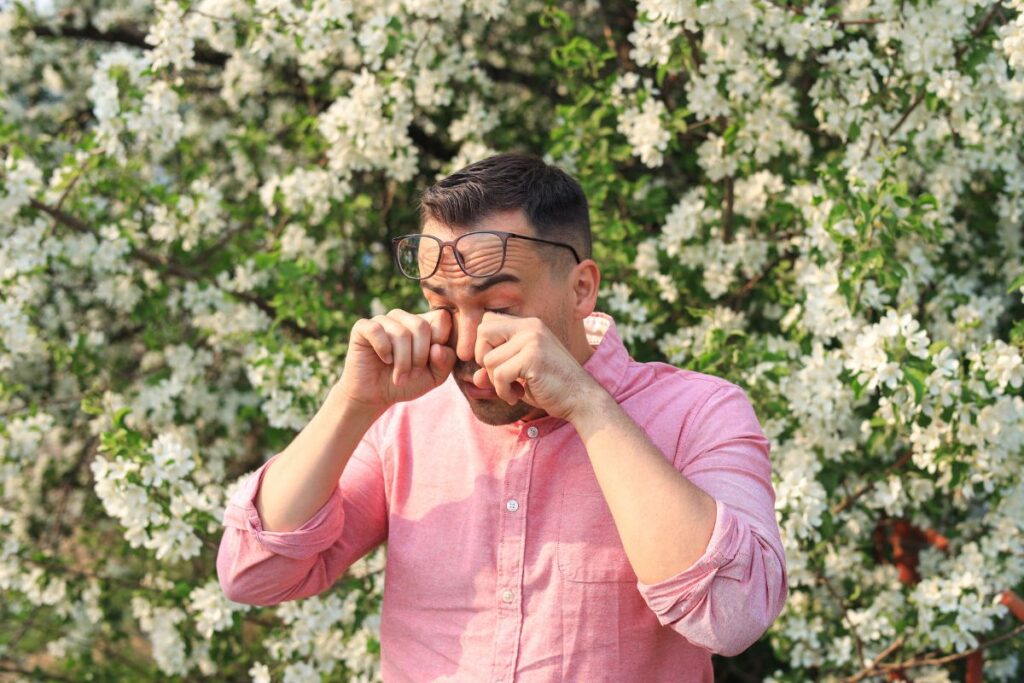Is your child or even you suffering from excessive tearing, with tears running down your face even when you’re not crying? You might be wondering, “Why does this keep happening, and what’s the cure?” Here’s why frequent tears could be occurring and how you can stop it.
What Causes Frequent Tearing (Epiphora)?
Epiphora, the medical term for frequent crying, is the condition in which the eye produces excessive tears. Sometimes this could indicate a more serious issue and not just the result of crying or emotional stress. Tears are needed for maintaining the health of the eye’s surface, lubricating the eye, and protecting it from foreign objects. You can still experience continuous tearing if the tear production gets excessive or if the tear drainage system isn’t working correctly.
There are several reasons why your eyes might be watering too much, ranging from blocked tear ducts to eye irritation. Here’s a breakdown of the causes:
1. Blocked Tear Ducts:
A blocked tear duct is one of the most common reasons for excessive tearing. Excess tears are drained from the eyes into the nose by the tear duct, also known as the nasolacrimal duct. Watery eyes result from improper tear drainage caused by a blockage in this duct. Blocked tear ducts are particularly common in newborns, but they can also occur in adults due to infections, age-related changes, or injury.
2. Dry Eyes:
Ironically, too much crying can be a symptom of dry eyes. To compensate for the dryness and irritation of the eye surface, the body produces more tears. But often, these tears are of low quality, which results in wet eyes.
3. Eye Irritation or Allergies:
Allergic reactions to dust, pollen, or pet dander can cause your eyes to become irritated, leading to increased tear production. Conditions like conjunctivitis (pink eye) or blepharitis (inflammation of the eyelids) can also cause your eyes to water excessively.
4. Foreign Bodies in the Eye:
The eye may become irritated by a foreign object, like a dust particle or an eyelash, and produce more tears to wash it away. This can happen suddenly and may cause discomfort along with excessive tearing.
5. Aging:
As we age, the tear ducts may become less efficient in draining tears. Age-related changes in the eye can also make the surface more prone to dryness and irritation, which can trigger increased tear production.
How to Treat Excessive Tearing?
The treatment for excessive tearing depends on the underlying cause.
1. For Blocked Tear Ducts:
Do a gentle massage on the affected area to help in clearing the blockage in children. However, if it doesn’t help, then the last option is surgery. In adults, a more invasive procedure, such as dacryocystorhinostomy (DCR), may be required to clear the blockage.
2. For Dry Eyes:
Artificial tears and lubricating eye drops reduce irritation and excess tearing to provide relief for dry eyes. Using a humidifier and avoiding wind exposure can also help.
3. For Eye Irritation or Allergies:
Antihistamine eye drops or oral medications can relieve allergy-induced tearing. If the reason is conjunctivitis or other infections, then antibiotics or antiviral medications may be required.
4. For Foreign Bodies:
If a foreign object is causing irritation, it can typically be removed by washing the eye with clean water or saline solution. If this doesn’t work, consult an ophthalmologist.
FAQ Section
Why does my child’s eye water constantly?
If your child’s eye is watering, it could be a blocked tear duct. This is common in infants and usually goes away on its own. If the problem persists, seek advice from an ophthalmologist.
Can dry eyes cause excessive tearing?
Yes, dry eyes can lead to excessive tearing as the body compensates for lack of lubrication.
What should I do if my eye won’t stop tearing?
If your eye is tearing excessively due to irritation or allergies, try using artificial tears or consult an ophthalmologist if the problem persists.
How HealthPil Can Help:
HealthPil offers online consultations with ophthalmologists who specialize in diagnosing and treating excessive tearing and blocked tear ducts. Whether it’s a case of dry eyes, blocked tear ducts, or allergic irritation, we can help you find the right treatment to resolve the issue.
Disclaimer:
This content is for educational purposes only. Always consult a healthcare provider for proper diagnosis and treatment of excessive tearing or other eye-related issues.

